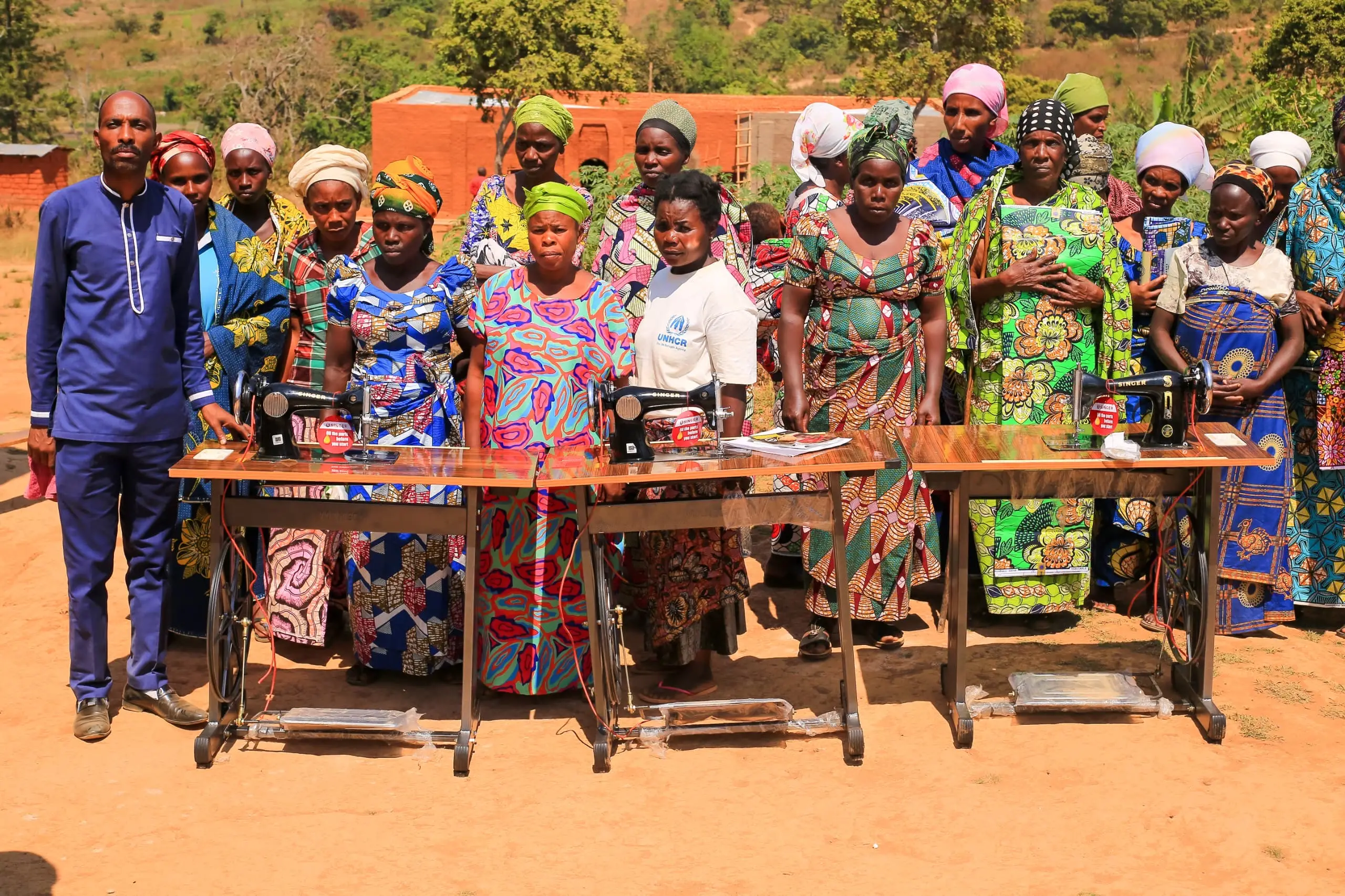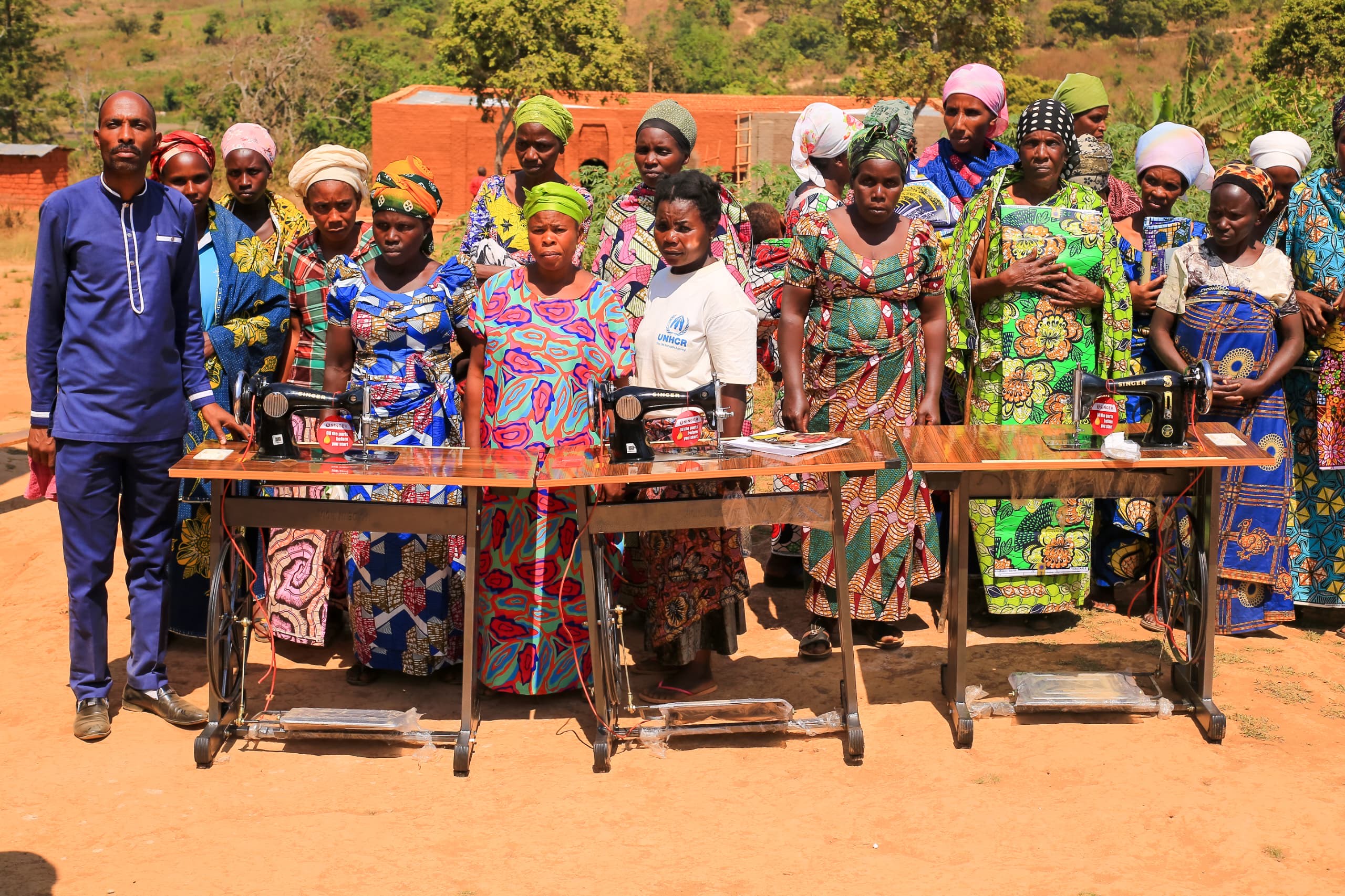EPWP At Afrika Tikkun:Youth Employment SouthAfrica Amidst Socioeconomic Challenges
The Expanded Public Works Programme (EPWP) at Afrika Tikkun’s Orange Farm Centre stands as a beacon of hope in the midst of South Africa’s youth employment crisis. As Youth Month 2025 concluded, conversations shifted from nostalgic remembrance to urgent action, demanding concrete strategies for youth empowerment. With a staggering unemployment rate among South Africans aged 15–34, initiatives like EPWP are more critical than ever. Afrika Tikkun has partnered with the Department of Public Works to provide short-term work opportunities, equipping young people with practical experience and essential workplace skills. These placements not only ease the pressure of joblessness but also introduce participants to structured working environments that build self-discipline, confidence, and long-term employability.
Orange Farm, one of the largest informal settlements in the country, bears the scars of systemic neglect—poor infrastructure, limited access to education, and widespread poverty. For its youth, the pathway out of hardship is often obstructed by lack of exposure and access to training. This is where the EPWP steps in. The program at Afrika Tikkun includes administrative duties, facility maintenance, community outreach, and early childhood education assistance. In addition to earning stipends, participants undergo mentorship sessions and life skills workshops—components designed to empower them beyond their temporary roles. By embedding social development within economic upliftment, EPWP at Orange Farm becomes more than just an employment scheme; it becomes a holistic transformation platform.
Importantly, the initiative aligns with broader goals of sustainable development and inclusive growth. While government policy often focuses on macro-level planning, programs like these prove that community-level engagement holds the key to long-term impact. EPWP’s integration with Afrika Tikkun’s education and skills development pipelines ensures that youth are not only absorbed into short-term jobs but are also transitioned into higher education or formal employment. This strategic continuum addresses both immediate and future needs. For instance, several alumni of the Orange Farm Centre have secured permanent employment or launched micro-enterprises. The success of this model should encourage replication across other high-need areas. Learn how renewable energy initiatives are also transforming local communities across Africa.
Youth Employment SouthAfrica: Community Engagement at the Core of EPWP Success
The Expanded Public Works Programme (EPWP) implementation at Afrika Tikkun’s Orange Farm Centre stands out as a powerful symbol of community-driven development. Unlike top-down models, this initiative was built around active involvement from the very community it aims to uplift. Through forums, feedback sessions, and skill-matching exercises, the EPWP tailored job opportunities to meet both the Centre’s operational needs and the participants’ aspirations.
This resulted in increased local ownership of the programme and significantly boosted morale among youth beneficiaries. Many participants reported a sense of pride in being part of a system that not only gave them income but also trusted them with responsibilities that made a tangible difference. This participatory model is now being looked at by other organisations as a best practice, showing that meaningful youth empowerment is achievable when initiatives are co-created with those they serve.
Additionally, the collaboration between Afrika Tikkun and various government departments helped to remove traditional barriers to youth employment. Often, young South Africans are locked out of the job market not due to a lack of talent, but due to bureaucratic inefficiencies, poor access to training, or the absence of mentorship. At the Orange Farm Centre, these hurdles were addressed holistically. Government support fast-tracked documentation, while the Centre provided daily mentorship, professional coaching, and psycho-social support. Such a comprehensive ecosystem allowed youth to thrive, not just survive, and positioned them to transition smoothly into longer-term employment or entrepreneurial ventures.
One standout feature of the programme is its data-led approach to improvement. Rather than waiting for quarterly reviews or formal audits, the EPWP team at Afrika Tikkun employed real-time monitoring tools. These tools collected participant feedback, attendance metrics, and impact stories on a weekly basis. The findings were used to tweak schedules, adapt training modules, and introduce new services when gaps were identified. This agility kept the programme relevant and responsive, which in turn boosted retention and outcomes. Several local municipalities are now in discussions to replicate this model, highlighting the growing recognition that youth unemployment demands flexible, responsive, and locally-informed solutions.
Youth Employment SouthAfrica: Addressing Youth Employment SouthAfrica Through Skills Development
Youth unemployment in South Africa hovers at alarming levels, with nearly two-thirds of individuals aged 15–24 out of work. The EPWP’s focus on employability skills has become a crucial lifeline for thousands of young people. At Afrika Tikkun’s Orange Farm Centre, participants engaged in skills training across diverse sectors such as IT, hospitality, early childhood education, urban farming, and construction.
Each training module was designed in consultation with industry experts and included both theoretical instruction and hands-on practice. This dual approach ensured that participants not only understood the concepts but were job-ready from day one. In post-programme evaluations, over 80% of trainees indicated that they felt confident applying for jobs in their chosen fields, a testament to the programme’s practical value.
Youth unemployment in South Africa is critically high, with nearly two-thirds of 15–24-year-olds jobless. The EPWP’s emphasis on employability skills plays a vital role for many young people, as seen at Afrika Tikkun’s Orange Farm Centre, where participants received skills training in sectors like IT, hospitality, early childhood education, urban farming, and construction. Training modules, developed with industry experts, combined theoretical instruction and hands-on practice, ensuring participants were job-ready. Post-programme evaluations showed that over 80% of trainees felt confident applying for jobs in their fields, highlighting the programme’s effectiveness. UseRegenerateWrite More
The Centre also prioritised digital literacy, recognising that even basic tech skills are essential for survival in the modern job market. Participants were trained in Microsoft Office, online communication, data entry, and digital safety, while advanced learners had the chance to delve into web design and social media management. Importantly, these sessions were not confined to computer labs; instead, mobile devices and tablets were used to promote flexible learning. Many participants had never worked with a computer before, yet by the end of the programme, they were comfortably creating CVs, sending emails, and even applying for jobs online.
In this way, the EPWP became a vehicle for digital inclusion—one of the most critical enablers of economic participation in the 21st century.
The long-term impact of such skills development efforts is already being felt. Several alumni from the Orange Farm Centre have gone on to start small businesses in sectors they were trained in, such as eco-friendly brick-making and organic vegetable farming. Others have joined the formal job market, with employers commending their work ethic, professionalism, and practical knowledge. By equipping youth with more than just theory, the EPWP challenges the notion that public job programmes are short-term fixes. Instead, it repositions them as launchpads for sustainable, meaningful employment. As we look to scale such initiatives, we must ensure that training remains relevant, industry-aligned, and adaptable to future job trends.
Youth Employment SouthAfrica: Through Meaningful Work Opportunities
At the core of the Expanded Public Works Programme (EPWP) initiative at Afrika Tikkun’s Orange Farm Centre lies a bold commitment: empowering South Africa’s youth not just with jobs, but with purpose-driven careers. The program responds to the nation’s staggering youth unemployment rate, which remains one of the highest globally. By integrating young people into projects that deliver community benefits—ranging from infrastructure maintenance to early childhood development—the EPWP provides a bridge between school and sustained employment. Many young participants describe the program as their first formal engagement with structured work, equipping them with not only income but also essential life and career skills.
The Orange Farm Centre’s focus is more than operational; it is strategic. This hub doesn’t just deploy youth in short-term roles—it nurtures long-term capacity. Partnering with civil society, government agencies, and private sector players, Afrika Tikkun creates a multi-layered ecosystem that addresses both immediate income needs and future employability. Participants are trained in areas such as financial literacy, communication, digital competency, and team collaboration, all critical in today’s evolving job market. For many, this training is the first time they feel seen, valued, and capable of building their own economic future.
In a broader national context, such interventions reflect a crucial pivot in how South Africa approaches youth empowerment. Rather than relegating young people to the periphery of the economy, the EPWP at Orange Farm places them at the center of developmental goals. The shift is philosophical as much as logistical: youth are no longer passive recipients of aid but dynamic agents of change. This mindset change is vital in a society still healing from the inequalities of apartheid, where the legacy of exclusion must now be met with inclusive innovation and intentional equity-building strategies.
Sustainable Youth Employment SouthAfrica Models: From Pilots to Nationwide Replication
To drive real transformation, Youth Employment SouthAfrica initiatives like EPWP in Orange Farm must evolve from local experiments into scalable models. This involves creating adaptable blueprints that account for provincial differences while upholding shared values—such as community engagement, measurable impact, and cross-sectoral partnerships. Tailoring the model to align with regional economies, from agriculture-focused areas like Limpopo to eco-tourism zones such as Mpumalanga, strengthens its nationwide potential.
Monitoring and KPIs: The Backbone of Youth Employment SouthAfrica Programs
Central to scaling Youth Employment SouthAfrica strategies is continuous monitoring and the use of Key Performance Indicators (KPIs). Tracking metrics like job retention post-program, formal job placements, and household economic impact helps replicate and optimize successful approaches. These KPIs aren’t mere statistics—they are essential indicators guiding funders, policymakers, and communities toward meaningful outcomes.
Entrepreneurship as a Core Pillar in Youth Employment SouthAfrica Strategy
Scalability also means expanding the scope of what youth programs deliver. In Youth Employment SouthAfrica schemes, entrepreneurship must be central—not just employment. Organizations like Afrika Tikkun are already integrating training in small business management, cooperative economics, and microfinance access, empowering young people to build sustainable livelihoods even in regions lacking formal job markets.
Youth Employment SouthAfrica Movement: Toward Economic Self-Sufficiency
Ultimately, Youth Employment SouthAfrica should be seen as a movement, not just a program. By embedding sustainability into every layer—from policy integration with Local Economic Development (LED) to grassroots ownership—these initiatives enable youth to define their futures. The mission is not just about creating workers, but nurturing entrepreneurs and change-makers capable of reshaping South Africa’s socio-economic landscape.
Youth Unemployment in South Africa: A Pressing Crisis
The issue of youth unemployment in South Africa remains one of the most pressing challenges facing the nation. Despite various government initiatives like the EPWP and the Climate Philanthropy Pledge, millions of young South Africans continue to struggle to find meaningful employment. This crisis not only affects economic growth but also threatens social stability and the future of an entire generation. Read our full article on youth unemployment in South Africa to understand the root causes and possible solutions.
Conclusion: EPWP At Afrika Tikkun’s Orange Farm Centre — A Model for Sustainable Youth Empowerment
The Expanded Public Works Programme (EPWP) at Afrika Tikkun’s Orange Farm Centre embodies a critical response to South Africa’s youth unemployment crisis. By offering meaningful, skills-building opportunities embedded within a supportive ecosystem, the programme goes beyond temporary relief—it paves a pathway toward sustainable livelihoods. This model demonstrates how targeted interventions, when combined with mentorship, community engagement, and holistic development, can empower young people to break cycles of poverty and exclusion.
What sets this initiative apart is its commitment to youth as agents of change rather than passive beneficiaries. Participants gain more than jobs—they gain confidence, skills, and a renewed sense of purpose. The integration of life skills training, mental health support, and career guidance alongside employment opportunities creates a comprehensive framework that addresses both immediate and long-term challenges faced by South African youth.
Moreover, the programme’s success underscores the importance of collaboration between government, civil society, and local communities. Afrika Tikkun’s ability to tailor the EPWP to Orange Farm’s unique context ensures relevance and effectiveness, serving as a blueprint for replication across other underserved areas. Data-driven monitoring and continuous improvement efforts enhance impact, demonstrating accountability and fostering trust among stakeholders.

In the face of a global youth employment crisis, initiatives like EPWP at Afrika Tikkun offer hope and a scalable solution. Investing in youth today is investing in the future prosperity of South Africa and the continent at large. As policymakers, funders, and communities rally behind this cause, it is essential to maintain a focus on sustainable, inclusive, and empowering approaches that leave no young person behind.
Source: africa.com




